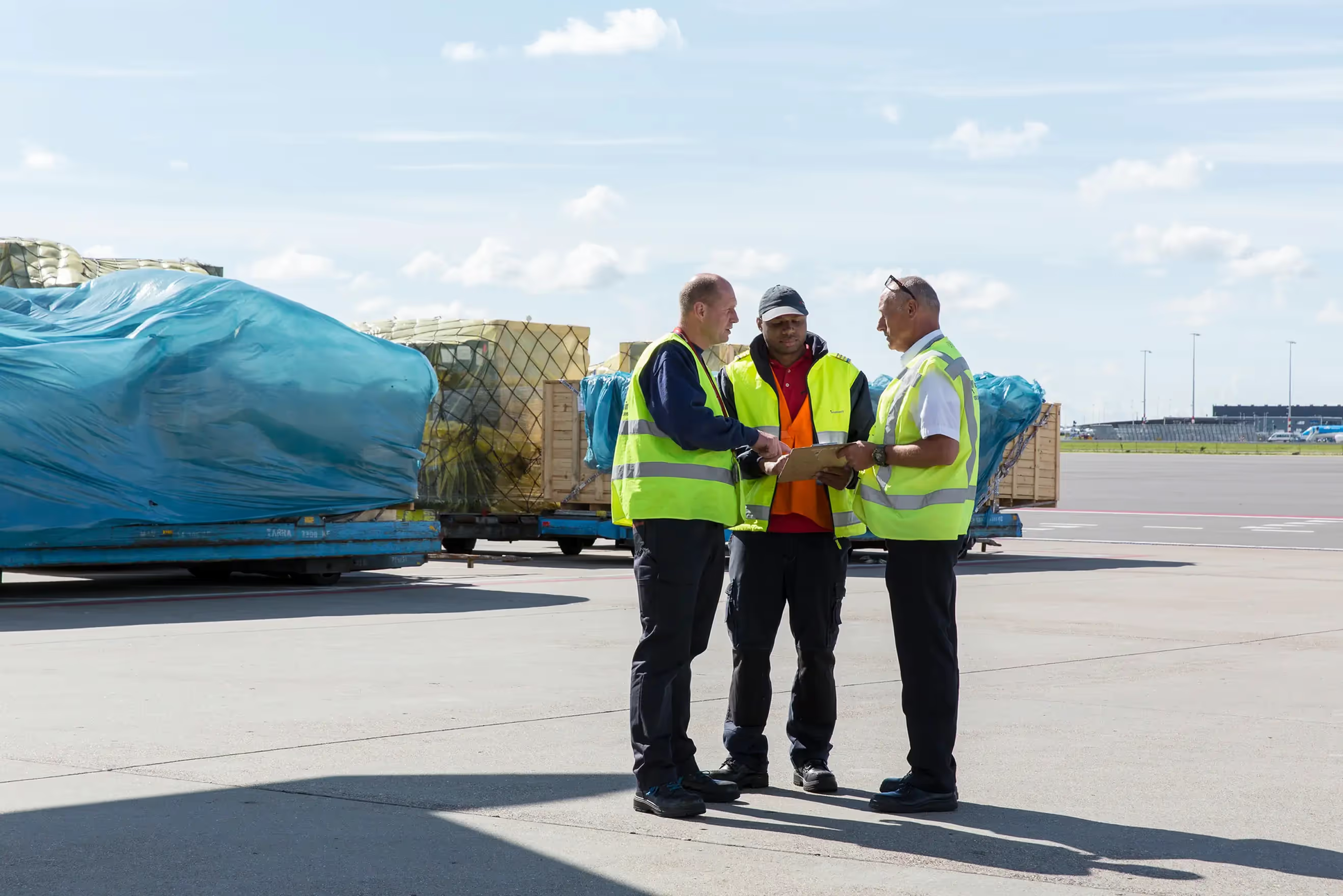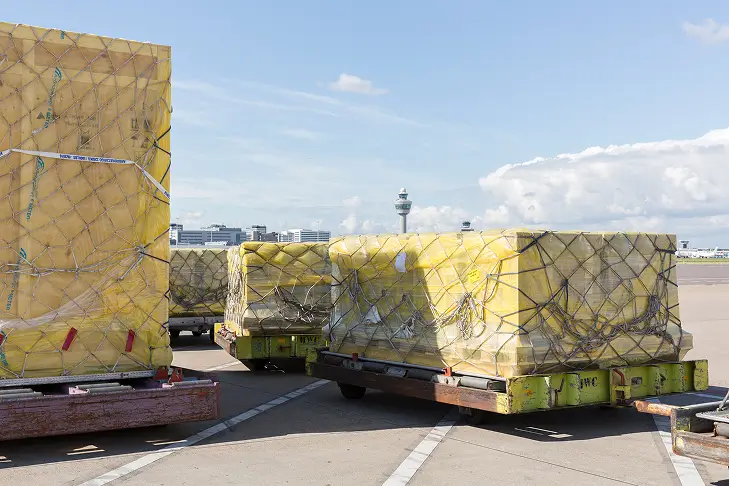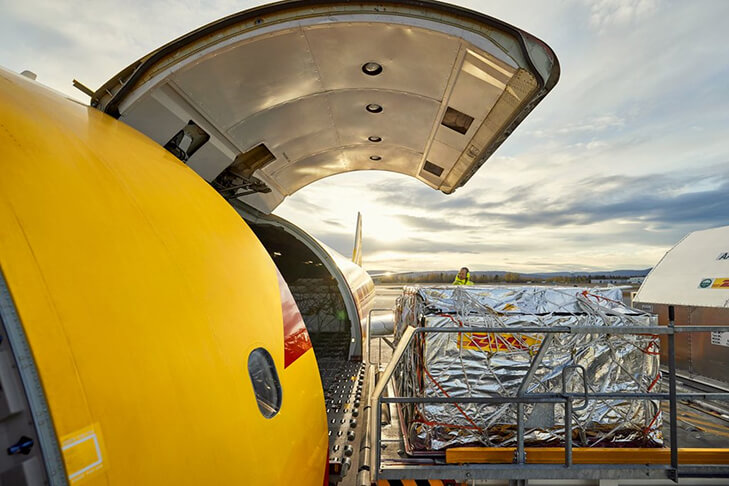Urgent air cargo shipments demand exceptional coordination across complex, multi-stakeholder supply chains. When production lines depend on just-in-time components or critical medical supplies require immediate transport, there's no margin for error.
According to the International Air Transport Association (IATA), 15% of global air cargo consists of time-critical shipments, yet these generate 40% of delays due to inadequate workflow optimisation. This strategic guide provides logistics leaders with proven methodologies to eliminate these inefficiencies.
1. Map Your Complete Critical Path Timeline
The foundation of successful urgent cargo management lies in comprehensive timeline mapping. Document every touchpoint from order receipt to final delivery:
Key Timeline Components:
- Carrier booking windows and capacity confirmation requirements
- Customs clearance processing times at origin and destination
- Ground handling capabilities and equipment availability windows
- Final mile delivery logistics and recipient availability constraints
- Documentation processing for permits, licenses, and clearances
Best Practice: Create visual timeline maps for your most common urgent routes, identifying the longest lead times and highest-risk segments. This connects directly to our cold chain handover guide for temperature-sensitive urgent cargo.
2. Implement Robust Real-Time Communication Architecture
Establish integrated communication protocols enabling all stakeholders to share updates instantaneously:
Communication Framework:
- Digital tracking platforms providing full supply chain visibility
- Automated alert systems for proactive issue detection
- Defined escalation matrices with clear responsibility chains
- Regular checkpoint protocols across all stakeholders
- Customer communication channels for proactive updates
Research from MIT's Supply Chain Management programme shows that companies with integrated communication reduce urgent shipment delays by 34%.
3. Build Strategic Buffer Management Systems
Implement intelligent buffer zones accounting for operational realities:
Buffer Categories:
- Booking buffers: Extra time for capacity confirmation during peak periods
- Documentation buffers: Account for customs processing variations
- Ground handling buffers: Factor equipment availability and weather contingencies
- Final delivery buffers: Consider recipient availability and access constraints
The 3-2-1 Buffer Rule: Allow 3 days for booking confirmation, 2 days for documentation finalisation, and 1 day for ground handling contingencies on critical shipments.
4. Develop Alternative Routing Strategies
Maintain operational flexibility through pre-approved routing alternatives:
Routing Options:
- Secondary airports with reduced congestion and faster processing
- Multi-modal combinations linking air with expedited ground transport
- Regional hub strategies utilising smaller airports with direct access
- Backup carrier relationships ensuring capacity during surge periods
Our experience shows that leveraging secondary airports can reduce total transit time by 2-4 hours compared to congested primary hubs. Learn more about optimal routing in our Aircraft Guide.
5. Technology Integration and Performance Monitoring
Deploy digital solutions enhancing visibility and control:
Technology Solutions:
- AI-powered tracking systems providing predictive analytics
- Automated documentation platforms reducing human error risk
- Mobile communication tools for field team coordination
- Performance dashboards tracking KPIs across operations
Key Performance Indicators:
- On-time delivery rates by route and carrier
- Lead time consistency across urgency levels
- Cost per expedited shipment including premiums
- Customer satisfaction scores for urgent deliveries
Partnership Excellence Framework
Success in urgent cargo depends heavily on choosing the right partners. Evaluate providers based on:
Partner Selection Criteria:
- Demonstrated track record in time-critical operations
- 24/7 operational support capabilities and response times
- Pre-positioned equipment and handling expertise
- Strong carrier relationships enabling priority access
- Technology integration capabilities for seamless communication
At Fliteline, we've refined these partnership principles through thousands of urgent missions, ensuring reliable outcomes when time matters most. Our Cargo Charter services combine systematic planning with operational agility.
Industry Case Study: Automotive Sector Success
A leading automotive manufacturer reduced urgent parts delivery delays by 67% through workflow optimisation:
- Challenge: Critical component shortages causing production line stoppages
- Solution: Implemented 72-hour buffer protocols with pre-approved alternate airports
- Result: Zero production delays over 12-month period, saving €2.3M in downtime costs
This demonstrates the tangible value of systematic urgent cargo workflow management.
Frequently Asked Questions
Q: What lead times are realistic for urgent air cargo bookings?
A: Most urgent charter confirmations require 48-72 hours minimum to secure appropriate aircraft and complete documentation. However, in true emergencies, options may be available within 24 hours at premium rates.
Q: How can technology improve urgent shipment reliability?
A: Real-time tracking, automated alerts, and predictive analytics enable proactive management of potential disruptions, reducing delays by up to 34% according to industry studies.
Q: When should I consider secondary airports for urgent cargo?
A: When primary hubs experience congestion, weather delays, or capacity constraints that threaten your timeline. Secondary airports often provide faster processing and more flexible scheduling.
Q: How do I calculate the true cost of urgent air cargo?
A: Include direct transport costs, expediting fees, opportunity costs of delays, and insurance premiums. Our team can help develop comprehensive cost models for your specific requirements.
Q: What documentation is essential for urgent international cargo?
A: Commercial invoices, packing lists, export permits, customs declarations, insurance certificates, and any dangerous goods documentation must be prepared in advance to avoid delays.
Ready to optimise your urgent cargo workflows? Our logistics specialists at Fliteline understand the complexities of time-critical shipments. Contact us for personalised guidance on building resilience into your most critical supply chains.
Get in touch with any questions about your air charter needs



